🗳️ Electoral College Deep Dive 🎓 - Electoral College Insights
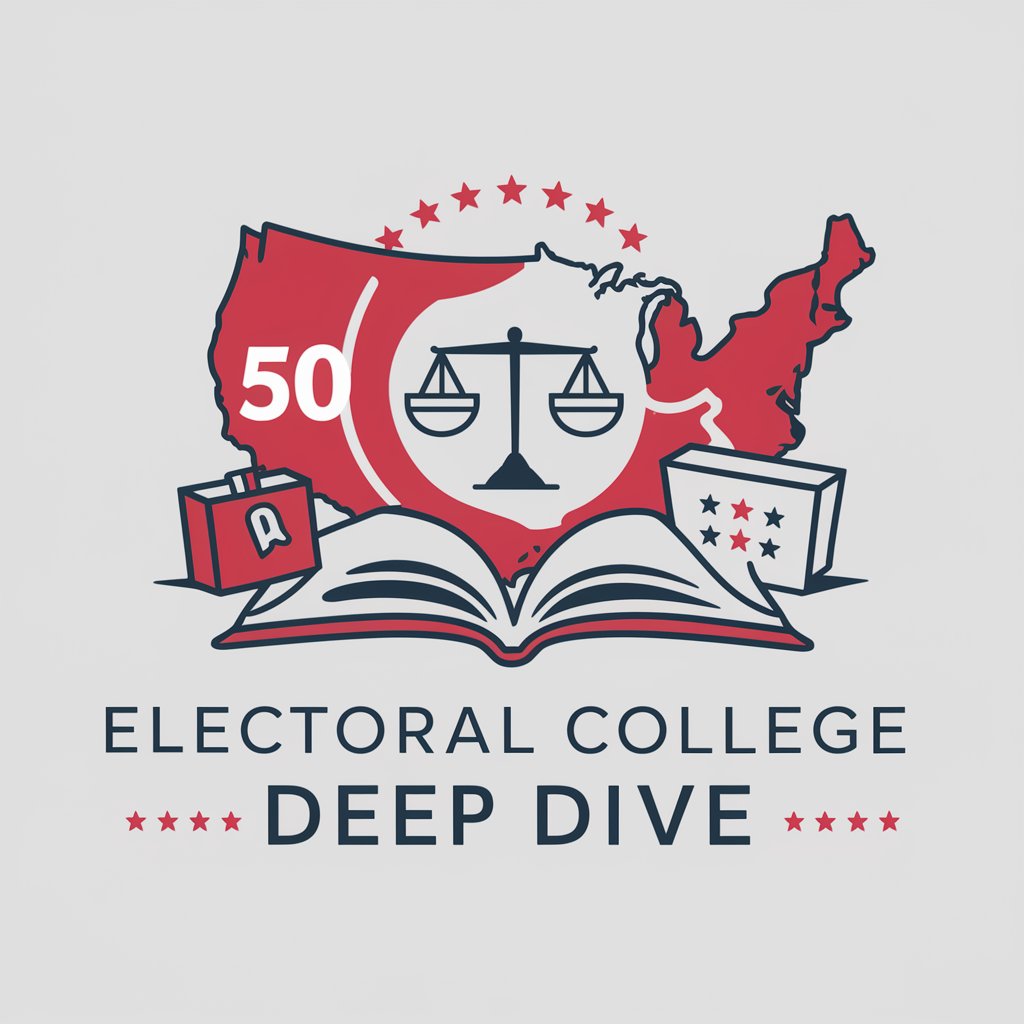
Welcome! Let's explore the complexities of the U.S. Electoral College together.
Demystifying Presidential Elections with AI
Explain the history and evolution of the U.S. Electoral College.
How are electors selected in different states?
Discuss the implications of the Electoral College on presidential elections.
Analyze a past presidential election where the Electoral College played a crucial role.
Get Embed Code
Understanding the Electoral College Deep Dive
The Electoral College Deep Dive is designed to offer an in-depth exploration of the United States Electoral College system, a critical component of American democracy. This service aims to clarify the complex mechanisms of the Electoral College, including how electors are selected, the process of casting state-by-state electoral votes, and the implications of this system on presidential elections. Through detailed explanations, historical context, and analyses, it seeks to educate users about the nuances of electoral processes and the debates surrounding potential reforms. Examples of this service's utility include simulating electoral scenarios based on current political trends and examining case studies of past elections to provide a comprehensive understanding of its impact on electoral outcomes. Powered by ChatGPT-4o。

Key Functions and Real-World Applications
Education and Clarification
Example
Explaining the origins and evolution of the Electoral College, including the rationale behind its creation.
Scenario
Used in academic settings or public workshops to provide students and citizens with a foundational understanding of the Electoral College.
Simulation of Electoral Scenarios
Example
Using current political trends to simulate potential outcomes of future presidential elections.
Scenario
Assisting political analysts and strategists in planning campaign strategies or predicting election results.
Examination of Reform Debates
Example
Analyzing arguments for and against the abolition or reform of the Electoral College, including proposed alternatives.
Scenario
Facilitating informed discussions among policymakers, scholars, and activists regarding potential changes to the electoral system.
Target User Groups for the Electoral College Deep Dive
Educators and Students
This group benefits from using the service to enhance curricular content on American government, providing a nuanced understanding of electoral processes to students.
Political Analysts and Strategists
Professionals in political consulting, campaign management, and analysis utilize the service to simulate electoral scenarios and strategize accordingly.
Policymakers and Activists
Individuals engaged in legislative processes or advocacy work use the service to inform debates on electoral reform and understand the historical context and implications of various proposals.

Using 🗳️ Electoral College Deep Dive 🎓: A Step-by-Step Guide
Start Your Journey
Begin by accessing a platform offering a seamless experience without the need for login or subscription, such as yeschat.ai, which provides a free trial.
Identify Your Query
Clarify the specific question or topic related to the Electoral College you need information on. This could range from the basics of its operation to in-depth analyses of its impact on elections.
Utilize the Tool
Enter your question or topic into the chat interface. Utilize clear and specific language to ensure the responses are as accurate and informative as possible.
Explore Advanced Features
For deeper analysis or to simulate electoral scenarios, specify your requirements, such as current political trends or historical election data, to tailor the tool's responses.
Apply Insights
Use the detailed explanations, historical context, and analyses provided to enhance your understanding, academic research, or discussion on the Electoral College.
Try other advanced and practical GPTs
🎙️ Persuasive Orator Pro 🖊️
Empower Your Words with AI

🚀 Rocket Your Campaigns 🎯
Empower Your Marketing with AI

📊 Poli-Pulse Tracker 🗳️
Deciphering Voter Sentiments with AI

🗳️ Electorate Engager Pro 🚀
Empowering Democracy with AI

🗳️ Ballot Insight Navigator 📘
Empowering informed voting decisions with AI
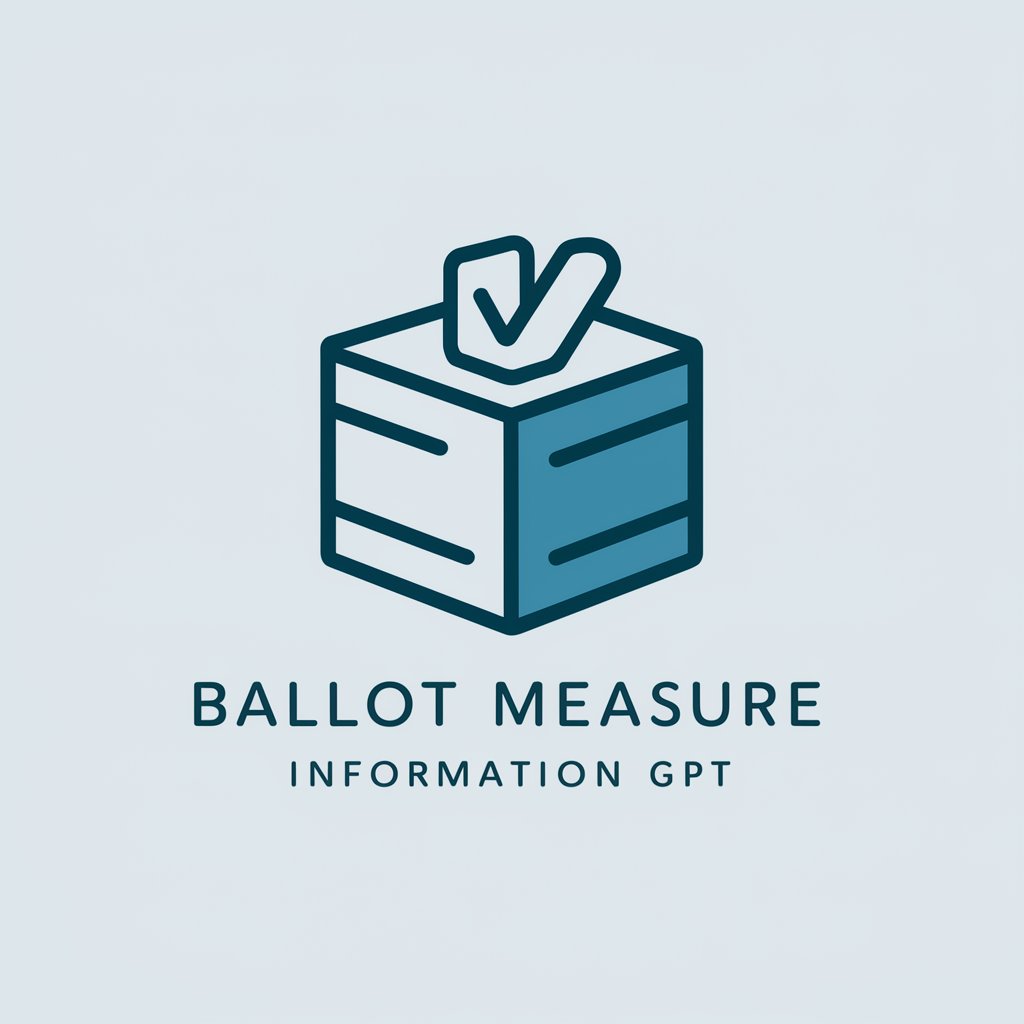
📊🗳️ Voter Engagement Strategist AI
Strategize, Analyze, Engage: AI-Powered Voter Insights
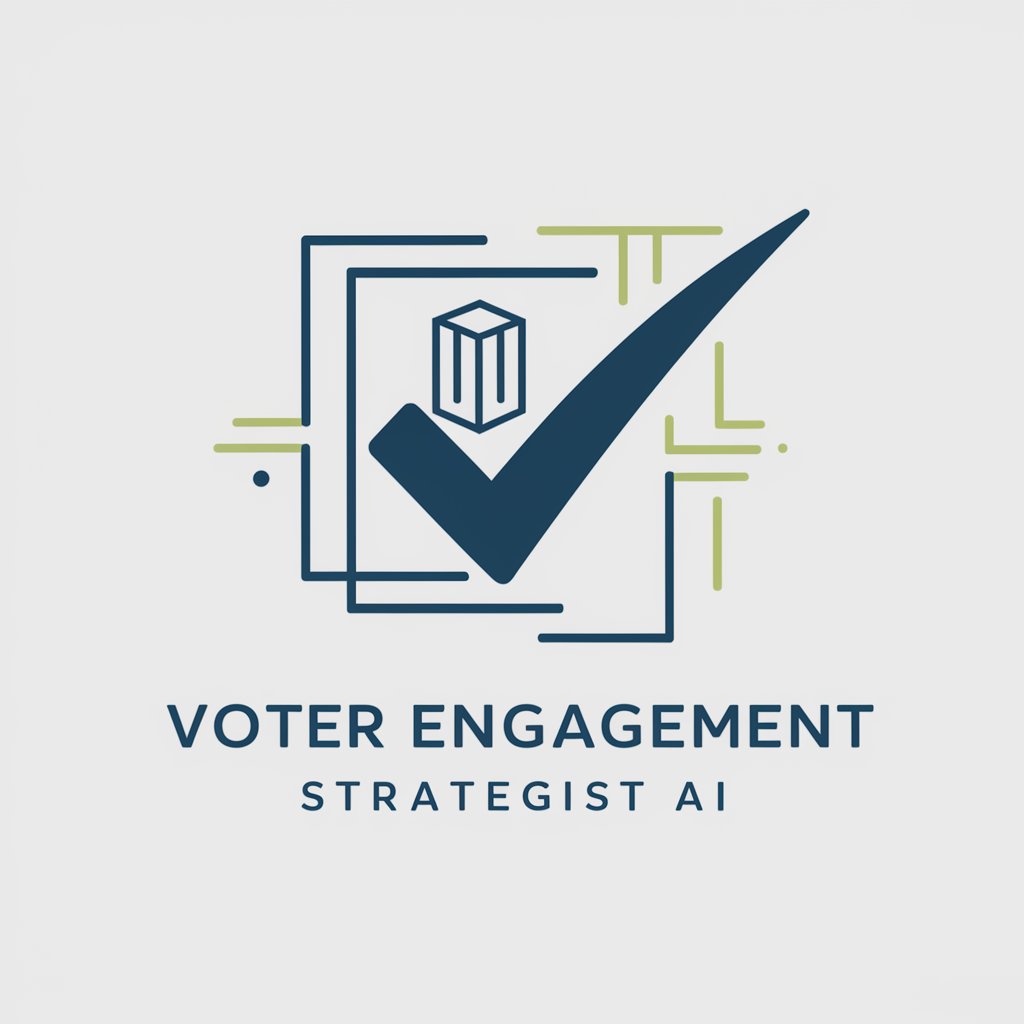
🎗️ Advocacy Ally & Campaign Strategist 📢
Empower Your Advocacy with AI

🎙️Campaign Trail Strategist Pro📈
AI-powered Campaign Optimization

🗳️ Electioneering Expert Helper 🤖
Strategize, Analyze, and Win with AI

🌱 Grassroots Campaign Strategist 🎯
Empowering grassroots movements with AI
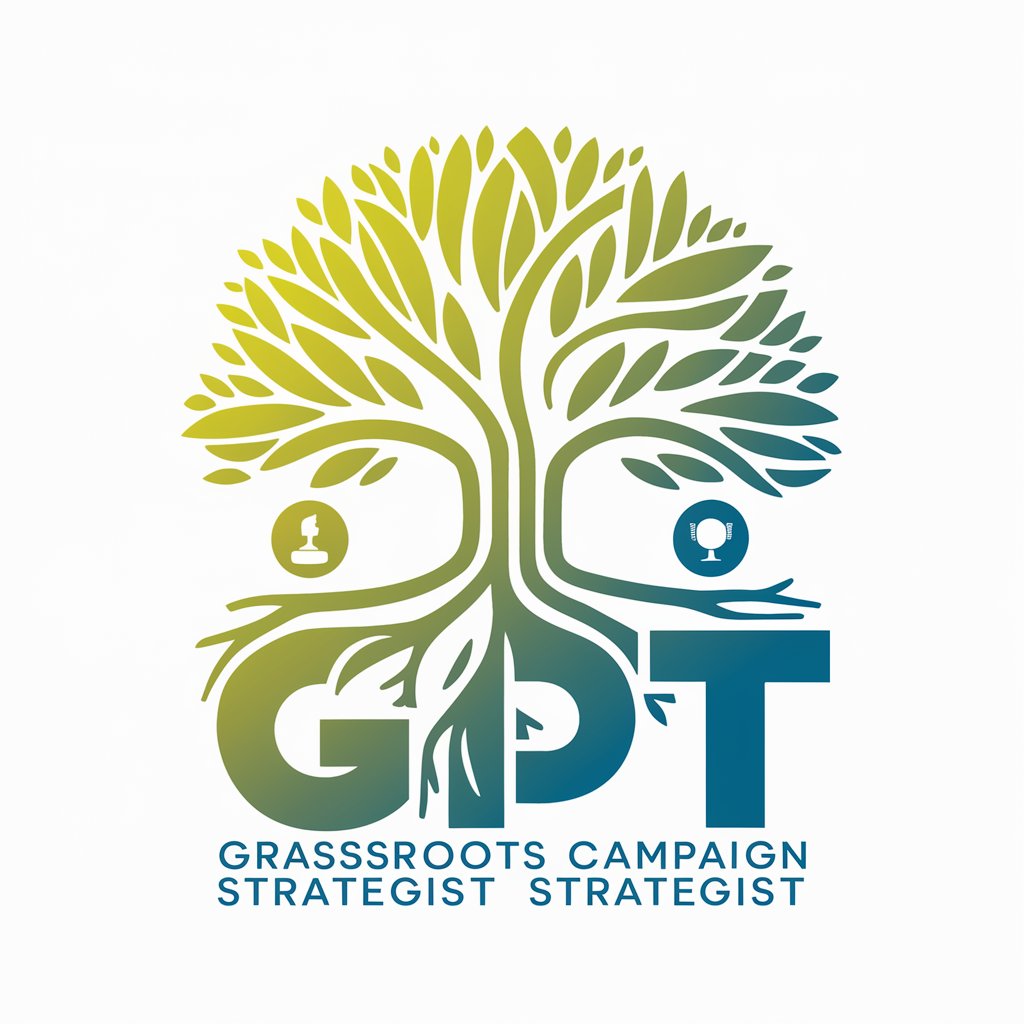
🏛️ Campaign Cash Catalyst 🤑
Maximize donations with AI

🗳️ Election Navigator Expert 📚
Navigate Election Laws with AI Power
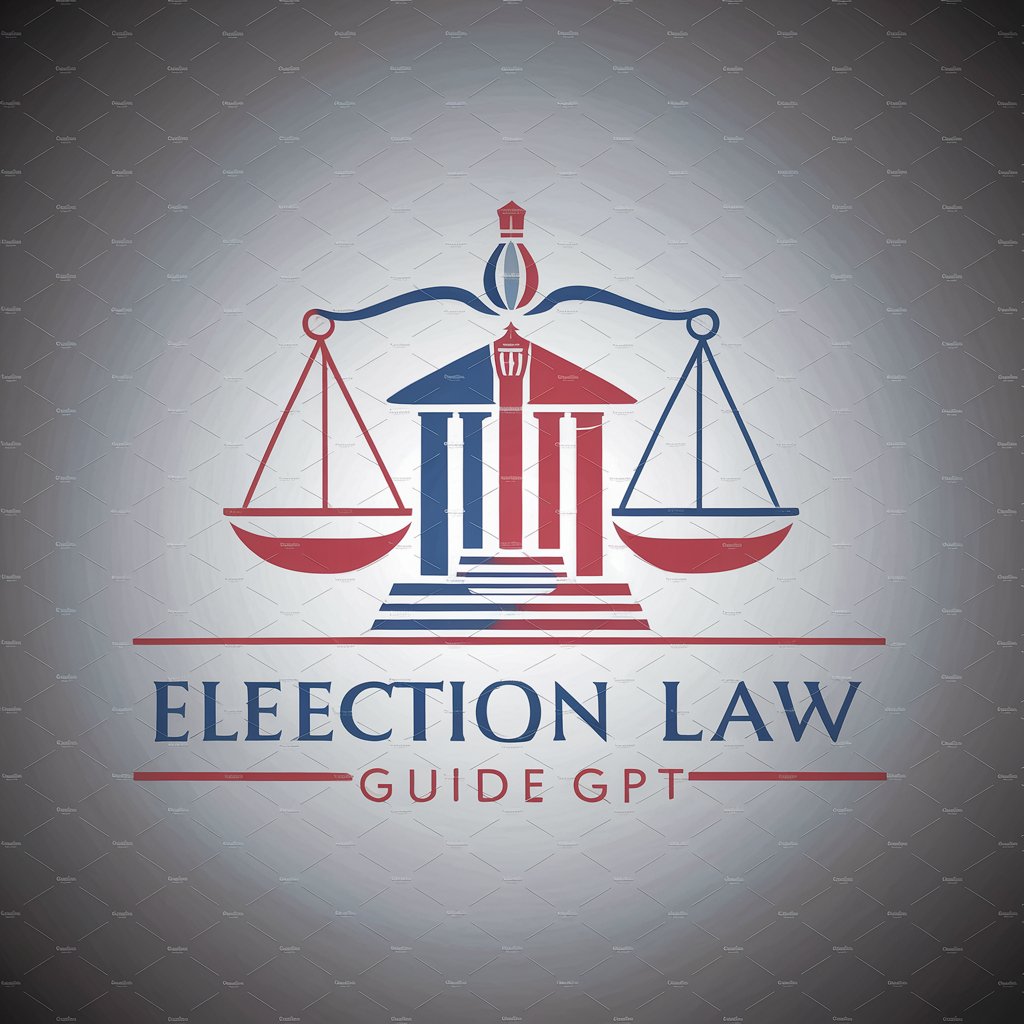
Common Questions about 🗳️ Electoral College Deep Dive 🎓
What is the Electoral College?
The Electoral College is a unique method for indirectly electing the president of the United States. It consists of a set of electors who are selected to cast votes for president and vice president based on the popular vote in each state.
How are electors chosen in the Electoral College?
Electors are typically chosen by political parties in each state, often during state party conventions or by the party's central committee. They may be pledged to support a party's candidate, reflecting the popular vote of the state.
Can the Electoral College result differ from the popular vote?
Yes, it's possible for a candidate to win the national popular vote but lose in the Electoral College. This has occurred in five presidential elections, most recently in 2016.
What are some arguments for and against the Electoral College?
Supporters argue it protects smaller states' interests and fosters a two-party system. Critics say it can disregard the popular vote and give disproportionate power to swing states.
How could the Electoral College be reformed or abolished?
Reforming or abolishing the Electoral College would require a constitutional amendment, a challenging process needing two-thirds Congress approval and ratification by three-fourths of the states, or a convention called for by two-thirds of state legislatures.
